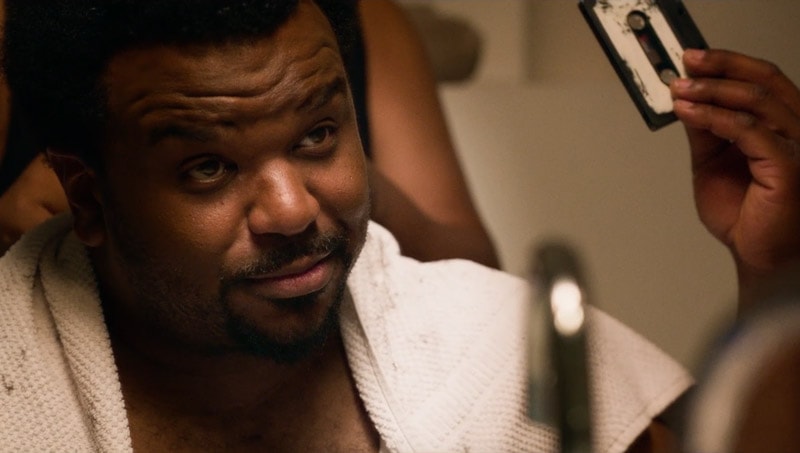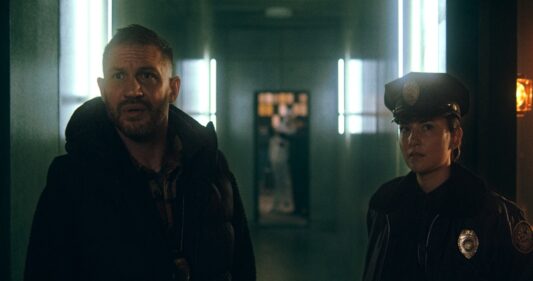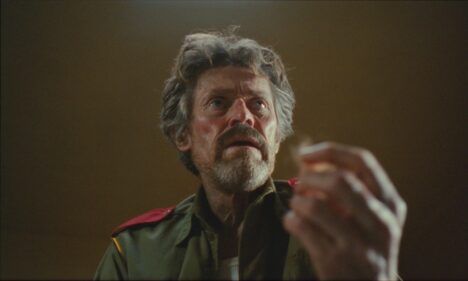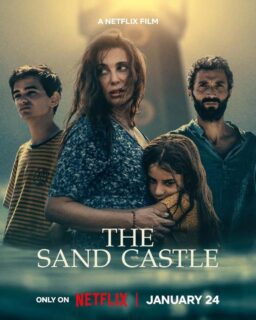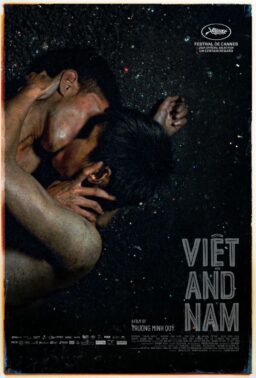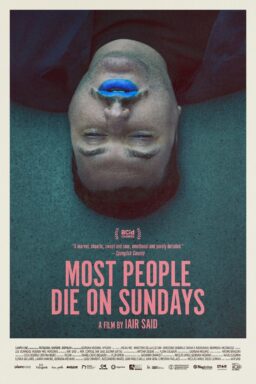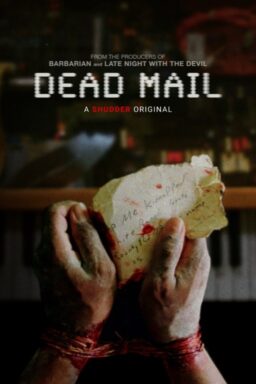In a pitch, writer/director Chad Hartigan’s “Morris from America” may sound recognizable—a coming of age story, about a young man trying finding his place while feeling like an outsider. But the film, which played opening night at the 2016 Sundance Film Festival (where it received the Waldo Salt Screenwriting Award) and has been making the rounds up to its release this Friday, adds many fascinating layers to such a concept. For one, it focuses on an African-American young man (Markees Christmas) who relocates to Germany with his soccer coach father Curtis (Craig Robinson), who both have to situate into their surroundings and life roles. Morris struggles to connect with the young people of his age, especially as they treat him like an anomaly; Curtis tries to be a good father to Morris with respectable space, but has his own loneliness with the memories of a deceased wife. In some of the film’s best scenes, the father and son bond through hip-hop, which also provides them moments to touch upon honest ideas of masculinity and vulnerability.
Along with offering two breakout performances from these actors, with Christmas making his big-screen debut and Robinson taking on the biggest dramatic duties of his career so far, the movie also has a challenging perspective: Hartigan is both Caucasian and, as he says in this interview, didn’t know that much about Germany when scripting it. A tale of outsiders—and one that can be very funny and heartbreaking—the film thrives on contrasting perspectives and achieves universal truths.
Hours before the film’s presentation at the Chicago Critics Film Festival this past may, RogerEbert.com spoke with Robinson and Hartigan about the film, the single name that Hartigan had to say to get Robinson on board, a nightmare Hartigan had about Robinson the night before shooting and more. Hartigan came in a few minutes ahead of Robinson, so we started from there.
So, you’ve been touring this movie for a while.
CHAD HARTIGAN: It hasn’t really felt like all that much. We went to Sundnce and then nothing until SXSW, and since SXSW I’ve just gone to Cleveland and Atlanta and Korea. And San Francisco.
How did this play in Korea?
CH: I watched the first ten minutes and there were no laughs, and then I left. It was a huge crowd, like 1,600 people. No laughs from 1,600 people. “This is bad.” But when I came back and did the Q&A and talked to people, they seemed to really like it.
The movie is like a melting pot. It’s not just American.
CH: I think the particular banter between Craig and Markees is very American. Their chemistry, you get it. [The audience] understood the relationship but they weren’t laughing at the little things.
Maybe some people can’t appreciate Big Pun references.
CH: Exactly. Or Source Awards.
You’ve said in interviews before that the Morris character started with your experiences, but then it became an African-American boy.
CH: “Are you crazy?”
It’s very interesting. When you’re writing from a character’s different perspective and experience, are you thinking about race constantly, or just thinking about the character and trying to see how it will naturally work?
CH: The key is you can’t be thinking about race. You can’t be thinking about a topic; just think about scenes and moments and what feels right. And sometimes race comes into that, coming up with an idea for a scene where, oh maybe the youth center guy who found the weed probably would talk to Morris first. And that’s because of his race. But, I don’t think you can look at it in terms of topics. And I also, anytime the movie was in danger of becoming too much about an issue, whether it’s racism or bullying or anything, I would want to move away from that. I wanted the movie to be about love, first and foremost.
It plays genuinely, but it does have aspects that seem to be about a specific perspective. So “Are you insane?” is kind of my question, yeah.
CH: It’s nice to hear that, but until a 13-year-old black kid tells that to me, who knows?
It’s great that the story is out there.
CH: With a movie like “Morris from America,” for example, which is a multi-cultural story, by definition I am going to be writing outside of my perspective for one of my sides. So I couldn’t be afraid of doing it. And the truth is, both sides I don’t know anything about. I had never really spent any time in Germany when I was writing this script. The Germans are also like, “What do you know about Germany?”

Were there times where you had to pull back when people said, “This doesn’t strike me as true?”
CH: I wouldn’t consider that as being pulled back, but pushed forward. It’s like, I rely on the collaborators, I relied on those German producers and I relied on Craig and Markees to just be like, “Uh-uh, this wouldn’t work.” Just trying to get the script to the point where it’s not embarrassing to show people, it’s good enough, and then everyone else that you work with, who have more authority on certain things, elevates it.
And then the story is about outsiders. and you put yourself into that perspective as a creator.
CH: Yeah, and I do have personal experience of being the outsider, or falling in love with someone who didn’t love me back. And a lot of specific scenes are directly ripped from my own life. The crotch/water-gun thing happened, the pillow scene was real, and the rap lyrics [which Morris recites], “F**king all the bitches two at a time”—I wrote those when I was 12.
And you wrote those because you thought you were cool?
CH: I wanted to be a gangster rapper [laughs]. I didn’t seriously picture myself one day being a gangster rapper, but I just loved the music and that’s how I expressed it. It was to the tune of Warren G’s “Regulate,” which Markees got it right away. I said, “Here’s the hook, Markees—Fuckin all the bitches, two at a time” and he was like, “Regulate”? [Laughs]
[Craig Robinson comes in]
CRAIG ROBINSON: I’m ready.
What scared you the most, and what excited you the most about this project?
CR: For me, the writing—
CH: Scared him.
CR: [Laughs] It was just like, “This is how I talk.” In the end it was a different look for me, and if I got selfish with it, it just spoke to me. I could feel the relationship and I love hip-hop.
CH: And you’ve always wanted to go to Germany.
CR: Always wanted to go to Germany … probably one of my top ten.
[To Craig] Anything that scared you about the project?
CH: The pay?
CR: It was really exciting. I still live in that, “I’m going to Germany to do a movie!” I just read something the other day, at a comedy club when they wanted to me to sign the walls. Someone signed it and didn’t put their name, they just put, “Never stop being grateful for this chance.” Sometimes I remember that, now I remember it more. This film was one of those times where I was like, “This is great. Let’s go do it.”
What about you, Chad? What scared or excited you?
CH: I was excited. This is my third film that I’ve made and the first one that had a real budget, so that was really exciting. We had a real crew, I wasn’t personally in charge of the hard drives during the whole shoot; all that stuff was very exciting to me. And then scared, I was scared of what we were talking about before, not being personally familiar with Germany all that much or not being familiar all that much with being black in a place where you’re not surrounded by other black people. But a funny anecdote, I wasn’t super scared about this—this is the first time I’ve ever worked with an actor who didn’t need to be in the movie. The other movies I had made were with people who were desperate to be in movies. But Craig is the first actor who …
CR: Could take it or leave it [laughs].
CH: He could have shown up with any attitude, and I didn’t know him that well, so I was a fan of his work and I was like “What if he doesn’t show up?” So I had one nightmare. I don’t know if I’ve told you this before—
CR: No!
CH: I had a nightmare that I went to go pick up Craig at the airport. He arrives in Germany and he has four adult sons that no one told us about. And the first thing he does is he pulls me aside and says, “Hey, I’m going to level with you. I did not know that flight was going to be so long, and I’m not happy.” And I woke up in a cold sweat like, “Oh no! He doesn’t want to be here!” So I had that one nightmare …
CR: What a horrible pre-dream.
CH: I had other nightmares about the set, that was the only one about you.
CR: What’s with these adult sons? [Laughs] Trey, DeMarcus …
CH: That’s your entourage. There was a brief moment of thinking, “Oh no, what if he gets here and he’s used to being on bigger movies?” But Craig was amazing and he had the best atttude the whole time.

Craig, what do you look for when it comes to projects to take on?
CR: Well, we met, Chad and I. And he dropped the name David Gordon Green.
Oh. There you go.
CR: Boom, there you go. But [Chad] was super hyped about the movie, and turns out he thought I wasn’t into it. I was on the set of a TV show at the time—“Mr. Robinson,” it’s cancelled. So we met, and I was into the script, and it was like, “Okay, this dude’s cool.”
CH: You were dealing with an emergency with the trumpet player of Earth, Wind & Fire.
CR: Well, my trumpet player. Because Earth, Wind & Fire was playing on the show, they were saying my trumpet player was a little too pitchy? But he was a great trumpet player, it was making me doubt, like “Hey man, are we going to have to bring in their trumpet player?” Anyway, forget that story. We met and I was already excited and he sold me on Markees and it was cool. I guess that is what I’m looking for, someone who is smart, passionate and knows what they want. And you get along and stuff. As far as the script, it made me laugh, it made me feel. So I was really psyched to be a part of that.
Watching your character in this film, Craig, I thought about your character Darryl on “The Office.” People really rooted for your character. I think people relate to that underdog arc. And here, you’re an outsider when you’re in Germany, just like when you go up to the office on the show. You playing this character makes total sense. We’re with you, like in the scene where you’re trying to have phone sex as a means of emotional connection. It’s so cold.
CH: My mom did not like that scene.
CR: Oh my god, I just remembered my mom is coming tonight. Dammit! One time I flew my family out to LA, to go to the big premiere, and I hadn’t seen the movie and I hadn’t thought about the movie. It was “Zack and Miri Make a Porno.” And I’m sitting next to my mom like, “What was I thinking?”
CH: It’s just the phone sex scene [in “Morris from America”]. You should prep her for that.
What was it like prepping that scene?
CH: We did rehearse it. We had a real woman on the other end of the line.
CR: It was very nice listening to her. I was kind of imagining what she looked like and kind of talking to her in between and people were laughing, and I’d let her know about the lighting.
CH: She was in Berlin. We were on set somewhere else, but she was just on the phone with Craig. She was reading the lines, the actress that we cast. Actually, we re-cast her in post. But I don’t think we did any rehearsals for it, we just nailed it on the first, second take.
CR: Nailed it!
This movie has a very refreshing portrayal of masculinity, with these vulnerable men and it’s seen as weak for someone to be rapping about “f**king other bitches.”
CH: I don’t know if this is what you’re referring to, but it was important for me to have Morris be a good kid, a kid who despite being around other kids that might be into it has to look up what ecstasy is, and is nervous about taking it and doesn’t actually take it. Just the kind of kid that exists in the world. There’s lots of kids who want to respect what their parents say, and feel like you don’t have to say all these things to be cool. And people don’t make movies about those kids because they don’t find them dramatically interesting, but I was one of those kids and I think that it can be. That was important. Whenever the point of the development process when the characters became black and were less like me, I was like, “I really don’t think I’ve seen a movie where there’s a young black male who has that kind of sensitivity.” And I’m sure there’s millions of them, but they’re portrayed in the movies I’ve seen, so that excited me.

Craig, do you have anything you wanted to add to that?
CR: [Playing] a single father, I need him to be a man quick. I also need him to experience life, and I know he’s going to get to all that, but I need him to be the best man that he can be. It was like, the trials and tribulations of raising a 13-year-old black boy in Germany.
CH: And that’s another thing actually—the reason the phone sex scene is in the movie is because in the script stage the financiers were pushing for the Curtis character to have some type of romantic interest, and I was like, “I really don’t want that.” I wanted this character to be devoted to his dead wife because that’s something I don’t think I’ve seen a lot too, so I wrote the phone sex scene instead.
CR: Not to mention, Curtis has to realize he’s got to lead by example. He’s telling him to go out and make friends, and he’s like “Wait a minute. I’m pretty much doing the same thing.” He’s got to discover. You missed a scene, I don’t think it made the final cut, where there’s this awkward moment where the guys are leaving soccer and my character is like, “Hey, where are y’all going?”
CH: They invite him to the bar.
CR: Because I invited myself. “Where you going?” “Getting drinks … you wanna come?”
CH: That’s not in [the film].
But that feeling is in the scene with him sitting with them at the bar.
CR: Oh yeah, it’s very awkward. Very awkward.
CH: That’s on the German TV version, which has got three extra minutes.
Craig—your long monologue in the car, towards the end. How rehearsed was it?
CR: Winged it! [Laughs] Oh man, the days kept getting closer and closer. For me, I have to live the words and I don’t want to be thinking about the words, I just want to go and “This is happening, I’m talking.” I was there for two weeks, but probably the second week we started preparing, because this was the last day of shooting.
CH: Your last day.
CR: In the meantime learning other stuff. It was like, “Let me learn this chunk and this chunk.” I’m just walking around Germany, reciting. And then freaking Markees over there, with the single tear, I’m like “Oh! Whoa! OK, kid!”
CH: Yeah, every take Markees made it rain.
And you were building up to that like a big moment.
CH: [To Craig:] Were you glad that was at the end?
CR: My God, yes. I’ve never had to prepare for that type of monologue before.
CH: But he crushed it.
CR: Boom!

